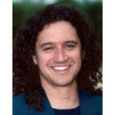Several decades ago, I listened to a talk given by a Western teacher who had become a monk in a Tibetan Buddhist tradition. In order to protect the possibly guilty, I’ll leave out his name. He described how, in the years since he’d become a monk and began formally practicing meditation, he had grown calmer and improved his ability to manage life's ups and downs.
The audience responded with both envy and optimism. They were optimistic because of the possibility that meditation could lead to more happiness. But maybe the envy was actually more like disappointment, because they knew they were unlikely to abandon their possessions and don the monk's robes in order to meditate all day, every day.
What I saw was quite different, however. This man had been practicing for about forty years. Now, my hunch is that there are a lot of people who find that they are calmer and wiser in their 60's than they were in their 20's, particularly if, like this monk, they didn’t have a mortgage or family or stressful Wall Street job.
All of these benefits that he was attributing to meditation could also be explained by normal maturity.
Now, this doesn’t mean that I think meditation has no value. If I thought that, I wouldn’t be teaching the Instant Advanced Meditation Course.
Still, I am not interested in making unsupported assumptions about meditation when it may be more valuable to apply critical thinking and analysis.
For whatever reason, when we meet someone who has chosen something we could not imagine for ourselves - like becoming a priest or a monk - especially when the discussion is about the spiritual life, we often tend to rely on the view of these "experts." But maybe those are actually the best times to practice what Buddha said in his rumored last words, "Do not believe anything just because it was written in a sacred book or taught by gurus and teachers."
The meditation community wants science to validate their claims and theories about the universe and the mind. I'm all in favor of that. But we should be sure to insist that meditation professionals are held to the same standards of rigor and scrutiny as the scientists who are studying them.
Steven Sashen began meditation when he was eight years old, was one of the first biofeedback pioneers, and researched cognition and perception at Duke University. In addition to a successful career as an entrepreneur and entertainer, Steven has taught transformational techniques around the world and developed the Instant Advanced Meditation Course, which Dr. Gay Hendricks calls, "Perhaps the fastest and easiest way to relax, expand awareness, and find deep inner-peace."
Additional Resources covering Meditation can be found at:
Website Directory for Meditation
Articles on Meditation
Products for Meditation
Discussion Board
Steven Sashen, the Official Guide To Meditation

Post new comment
Please Register or Login to post new comment.